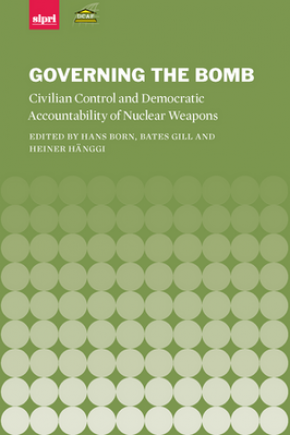Governing the Bomb: Civilian Control and Democratic Accountability of Nuclear Weapons

'Go nuclear' or 'go zero'-as the international community stands at a nuclear crossroads, a number of questions demand urgent attention: How do established and emerging nuclear-armed states manage their nuclear affairs? Who commands and controls a country's nuclear forces? What effect does the balance between secrecy and openness have on larger questions of security and democracy? Governing the Bomb is grounded in the belief that the public's ability to hold nuclear-armed states accountable for the security of their weapons is contingent on proper knowledge of domestic nuclear governance.
With a special emphasis on civilian control and democratic accountability, Governing the Bomb seeks to illuminate the structures and processes of nuclear weapons governance of eight nuclear-armed states: the USA, Russia, the UK, France and China as well as Israel, India and Pakistan. It examines the theoretical as well as practical functions and structures of those who possess the power to make nuclear decisions and those who have the practical means and physical opportunity to execute those decisions. While it assesses the whole spectrum of political oversight and control mechanisms in operation for each country-including the roles and requirements of the executive, the military and specialized civilian institutions-it also takes a closer look at parliamentary institutions and civil society at large. As nuclear terrorism, proliferation and disarmament vie for the top slot on the global security agenda, a comparative understanding of the various national nuclear discourses is no longer optional, but required.
1. Introduction, Hans Born, Bates Gill, and Heiner Hänggi
2. The United States, Peter D. Feaver and Kristin Thompson Sharp
3. Russia, Alexei Arbatov
4. The United Kingdom, John Simpson and Jenny Nielsen
5. France, Bruno Tertrais
6. China, Bates Gill and Evan S. Medeiros
7. Israel, Avner Cohen
8. India, Waheguru Pal Singh Sidhu
9. Pakistan, Zafar Iqbal Cheema
10. Conclusions, Hans Born and Bates Gill
Appendix A. World nuclear forces, 2010